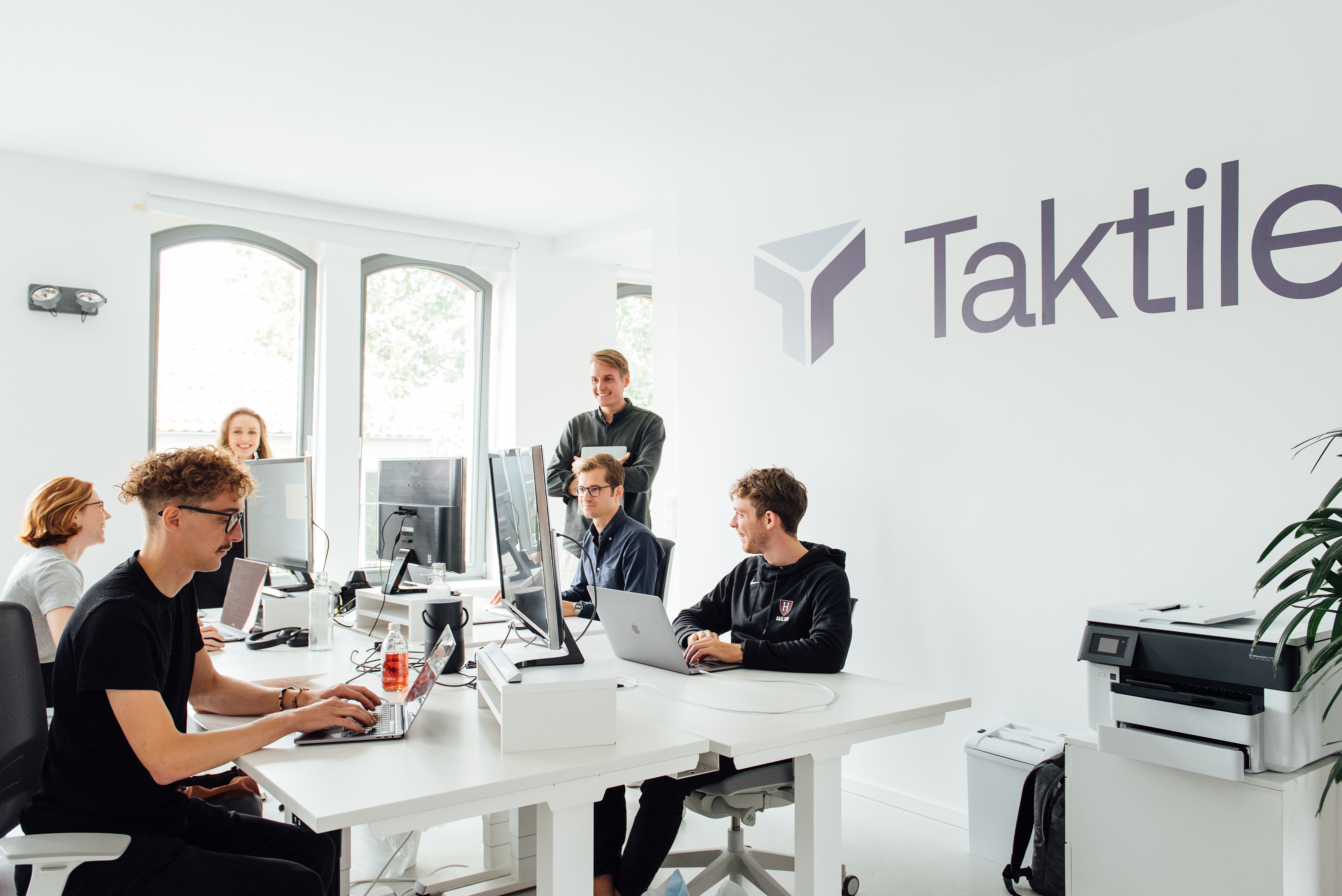The logic behind many fintech companies’ automated decisions — decisions that determine whether a customer is approved for a credit line, for example — is hard-coded into their app’s backend. This means that if a head of credit, for example, wants to make a change to the lending criteria, they have to raise a ticket with the IT department.
To make changing this type of automated logic a more self-service process, Maximilian Eber and Maik Taro Wehmeyer founded Taktile in 2020. The two met while studying at Harvard and were both a part of the leadership team at QuantCo, a company building AI-powered apps for enterprise customers. While there, they found that many automated decisions were poorly designed, hardly ever tested properly and required a lot of engineering capacity — ultimately leading to guesswork.
“Based on our experience, we decided to build a platform — Taktile — to empower experts, such as a head of risk, to design, evaluate and deploy decision flows on their own without the need for developers,” Wehmeyer said in an email interview. “By using Taktile, fintechs can adjust their risk selection in a data-driven way and ensure they only underwrite the risks that match their strategy.”
When asked about the size of Taktile’s customer base and financials, Wehmeyer declined to comment, citing competitive reasons. But investors apparently see growth potential. Taktile today closed a $20 million Series A round co-led by Index Ventures and Tiger Global, bringing the startup’s total raised to $24.7 million. Tiger’s participation is especially notable considering that the VC firm recently scaled back investments, targeting $6 billion for its next fund — half the size of its prior investment vehicle.
“The round was preempted by Tiger Global and Index Ventures as they saw strong indications of product-market fit and believed that the time was right to start scaling the business,” Wehmeyer said. “This round will help us further accelerate our ongoing expansion in the U.S., where we have seen rapid growth, increasing our client base by 4x since the end of last year.”

To customers, Taktile offers a no-code interface that allows nontechnical employees to build, adjust and evaluate decision flows. Wehmeyer gave an example: Say a bank wanted to tweak its lending criteria by moving the minimum age to apply for an account from 25 to 21. Taktile would let the head of credit at the bank back-test the change and analyze its impact before actually implementing it.
Users can also leverage Taktile to experiment with off-the-shelf data integrations and monitor the performance of predictive models in their decision flows, Wehmeyer said, performing A/B tests to evaluate those flows. He claims that Branch, Moss, Rhino, Novo and Vivid Money are among the fintechs using the platform to power 280,000 decisions every day.
“From the very start, our technology has been used by advanced lenders that host machine learning models on our platform, which process thousands of variables from alternative data sources to assess creditworthiness of potential borrowers,” Wehmeyer added.
It’s a lot of sensitive data that Taktile handles. To allay the fears of privacy advocates, customers and regulators, Wehmeyer says that Taktile built technology that enables its clients to host decision flows in their country of choice and process data locally — a requirement for many regulatory agencies.
That won’t likely solve the different but related problem of algorithmic transparency. As a piece in The New York Times recently detailed, some lenders are increasingly drawing on outside-the-box data sources to evaluate creditworthiness, presenting opportunities to consumers historically barred from certain financial products but at the same time amplifying the risk of perpetuating biases or making inaccurate predictions.
Taktile puts the onus on its fintech customers to communicate the types of data and models they’re hosting and deploying via the platform.
“The decisioning needs of the financial industry are rapidly evolving, especially when it comes to infusing decisions with machine learning and applying data-driven optimization of decision flows,” Wehmeyer said. “These needs are not really met by legacy players in the market so we mostly compete with in-house solutions built by sophisticated teams.”
Wehmeyer also sees Noble, a platform that provides a rules-based engine to edit and launch credit models, as a rival. But he asserts that Taktile, which went through Y Combinator, has a “healthy” cost structure and plenty in the way of capital to hire talent.
“Before the slowdown in tech, fintechs were mainly driven by customer growth at any cost. Now, however, investors expect a clear path towards profitability, which makes sophisticated risk decisioning a hard requirement,” Wehmeyer said. “Building a complex decisioning system takes years of work and costs millions of dollars, so instead of going down this path, customers are turning to platforms like Taktile to quickly adapt to this new, volatile market dynamic.”
Taktile, which employs a team of 45 people, has offices in New York, London and Berlin. Wehmeyer says he expects headcount to grow to 70 people by the end of 2023.






























Comment